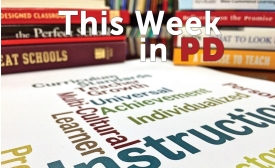foreign aid
Following the release of the federal budget this spring, many members of Canada’s international development community worried about this country’s long-term commitment to families like the Hernandez’s. hankfully, a practical new framework for Canada’s international assistance, released Friday by Marie-Claude Bibeau, Minister for International Development, underscores Canada’s commitment to our sector and provides relief for those troubled by Canada’s stalled aid contribution in the 2017 budget.
Women-focused aid groups welcomed Prime Minister Justin Trudeau’s unapologetically feminist foreign aid policy. [...] In five years, 95 per cent of Canada’s overseas development assistance will be devoted to programs that target gender equality and the empowerment of women and girls. Fifty per cent of the development budget will go to sub-Saharan Africa and the amount of funding going to health and reproductive rights will double. [...] “The research shows beyond a doubt that investment in a girl’s education is the most effective investment we can make in international assistance.”

Headlines explore government campaigns to increase their countries' soft power.
German Foreign Minister pledged 3.5 million euros of extra refugee aid for the conflict-ridden state struggling to emerge from the throws of civil war. The money will be used to improve the catastrophic conditions seen in the refugee camps across the country, with systematic sexual abuse and violence reportedly widespread. In the first five months of this year, 60,000 refugees have come to Europe via Libya, a rise of 26 percent compared to the previous year. Approximately 1,700 people were killed as they attempted to cross the Mediterranean Sea from January to May 2017.
Campaigners who believe funding for schooling in the world’s poorest countries has hit crisis levels say next month’s G20 meeting will be a “make or break” moment for education. The share of aid funding spent on education has fallen for the past six years, from 10% in 2009 to 6.9% in 2015, according to new figures from the UN Educational, Scientific and Cultural Organization (Unesco). Education now receives as little in aid funding as transport.
Delegates of the Young Diplomats of Ghana (YDG) hosted a farewell dinner last week at the Tomreik Hotel in Accra in honor of the UNAIDS Country Director, Mr. Girmay Haile, who ends his duty tour to Ghana at the end of June this year. The dinner offered the opportunity for the young diplomats to have a final interaction with Mr. Girmay, on his experiences working as a Diplomat in Ghana and to congratulate him for his selfless dedication to the vision of UNAIDS in Ghana and support for the cause of YDG as Patron.

This week’s PD News headlines explored education and its impacts on public diplomacy, from female empowerment to terrorist prevention.
President Donald Trump's decision to remove the U.S. from the Paris climate agreement is yet another manifestation of how he continues to see U.S. interests as narrowly economic. Had the president a more expansive view of both the nation's interests and influence, he would have kept the U.S. in the accord. Instead, he not only harmed global efforts to address a pressing problem, but also deprived the U.S. of an important source of so-called soft power. In a world in which military might is increasingly difficult and costly to use, America will suffer from this loss.







